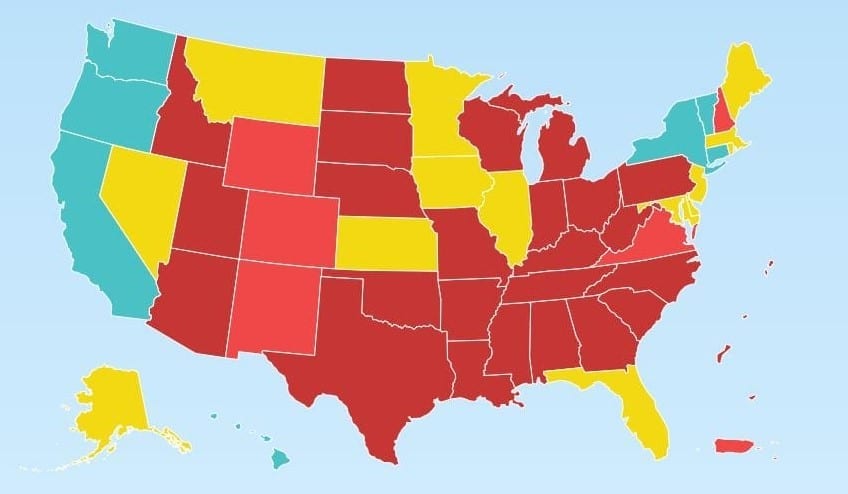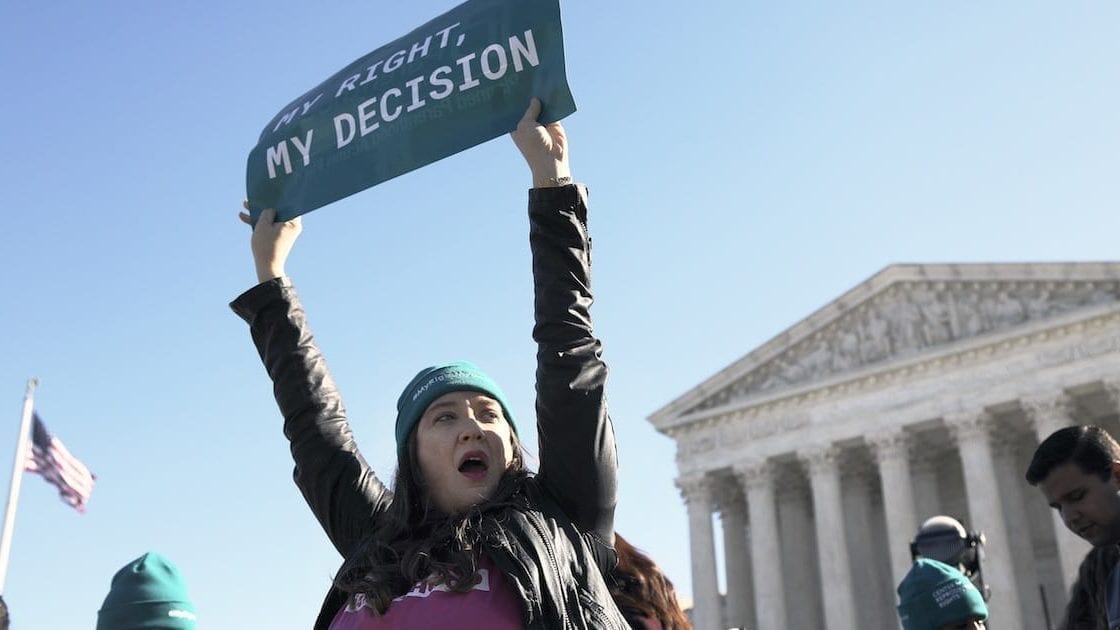What if the Supreme Court overturns Roe?
Nearly half the states in the U.S. are expected to take action to ban abortion if the Supreme Court overturns Roe v. Wade.
On December 1, the U.S. Supreme Court heard oral arguments in the Center’s case, Dobbs v. Jackson Women’s Health Organization—the most consequential abortion rights case in generations.
Read more about the Supreme Court case.
This case, which challenges a Mississippi abortion ban, marks the first time the Court will rule on the constitutionality of a pre-viability abortion ban since Roe v. Wade in 1973. Mississippi enacted the law in direct defiance of Roe and the nearly 50 years of Supreme Court precedent affirming Roe’s core holding—that every pregnant person has the right to decide whether to continue their pregnancy prior to viability.

What will happen if the Supreme Court overturns or weakens Roe?
According to the Center’s “What if Roe fell?” interactive map of U.S. state and territory abortion laws and policies, 24 states would likely take action to prohibit abortion outright. Twelve states—including Mississippi—already have “trigger” bans in place that are intended to ban abortion if the Supreme Court were to overturn Roe v. Wade.
“What if Roe fell?” examines several legal factors, including laws, constitutions, and court decisions on abortion. The tool categorizes 24 states as “hostile” to abortion since they’re extremely vulnerable to the revival of earlier abortion bans or the enactment of new ones. In addition, five states fall into the “not protected” category. Concern is warranted in those states because abortion is not protected under state law.
Find out which states are likely to ban abortion if the Court overturns Roe:
Click here or on the image above to explore the Center’s “What if Roe fell?” abortion laws map.

